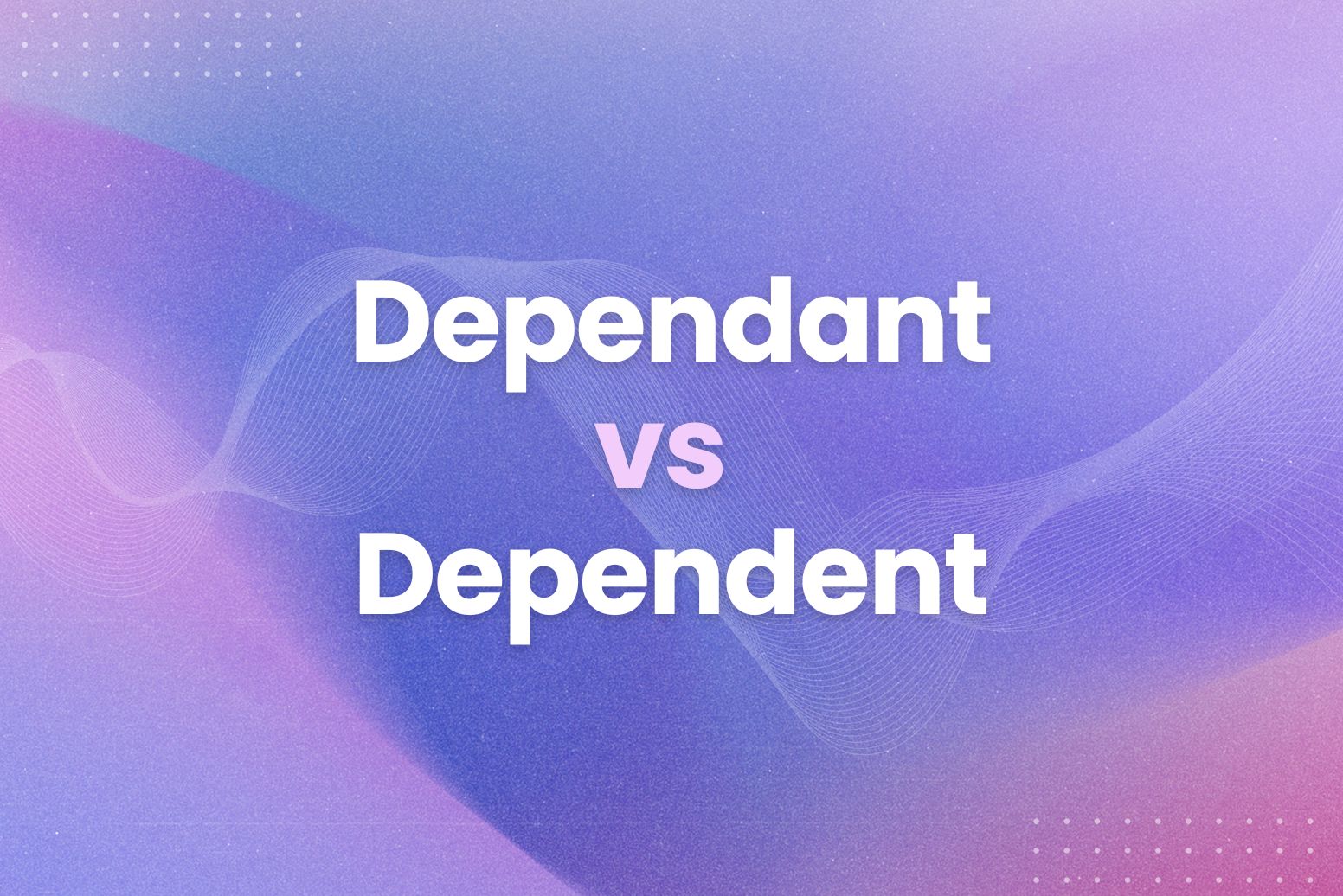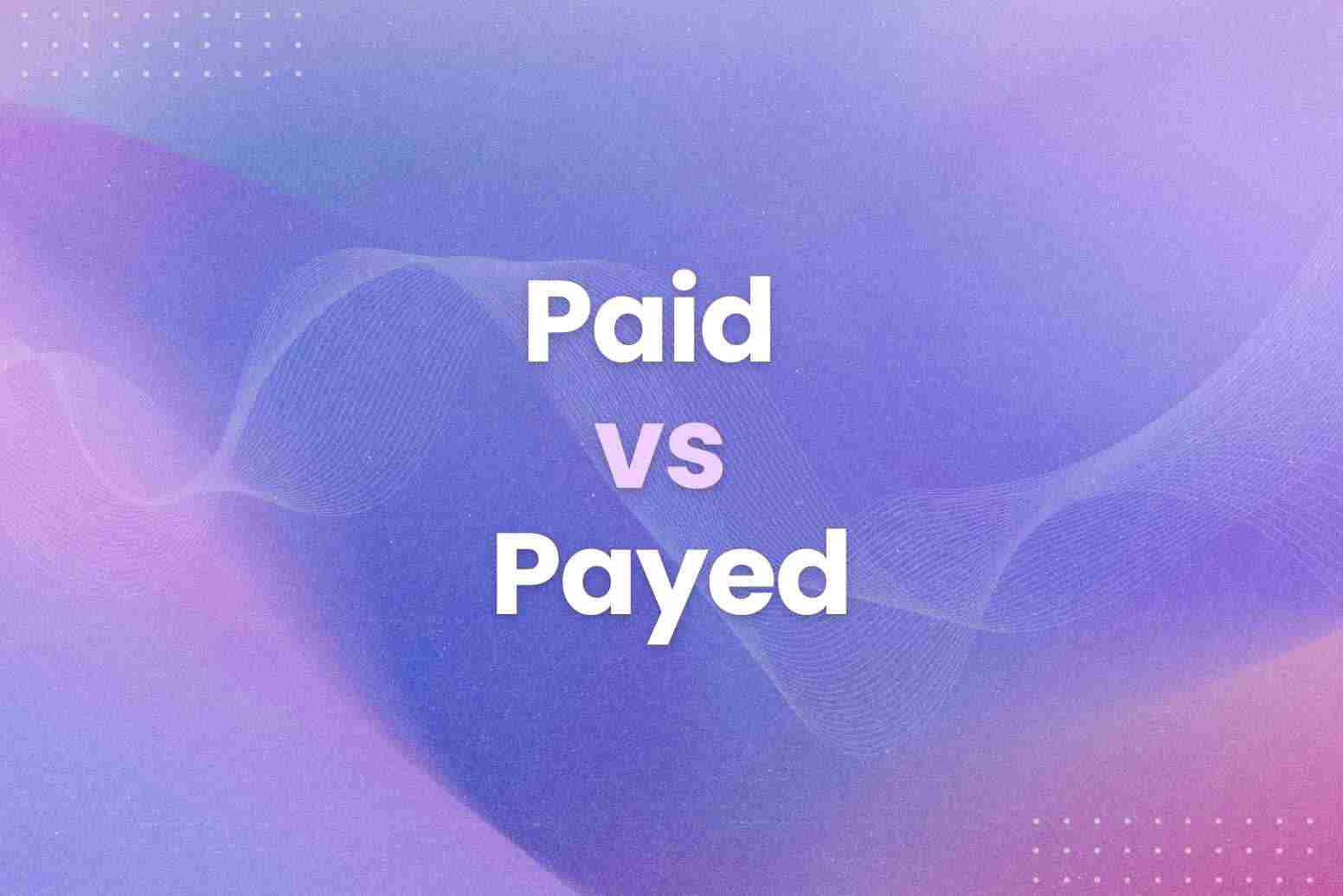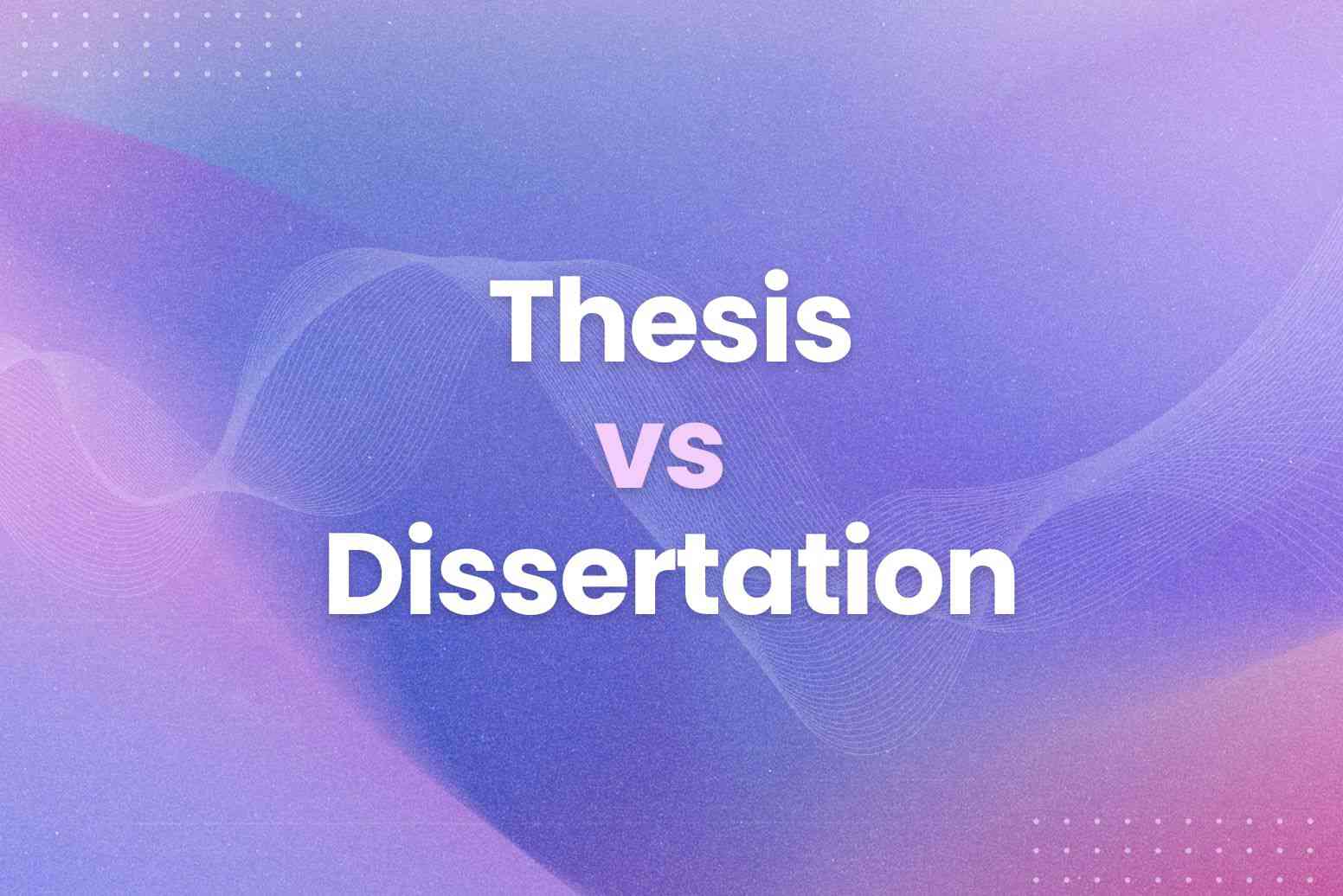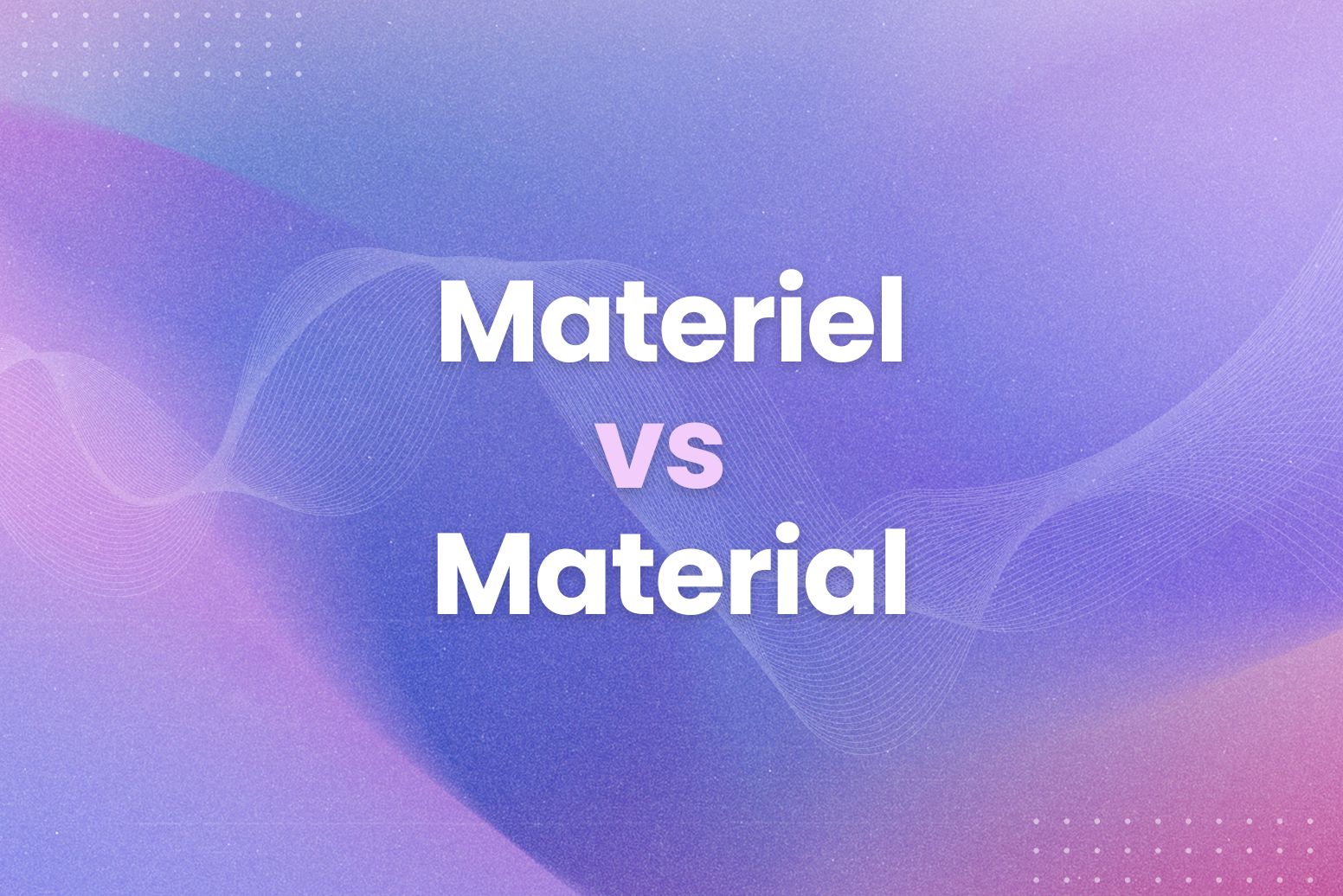We’ve all been there. Staring at the screen, wondering if it’s “dependant” vs “dependent.” It’s a common grammar puzzle that trips up even the best writers. But don’t worry. In this post, we’ll break down the difference between these two words once and for all.
Here’s what we’ll cover:
- First of all, the meanings of “dependant” and “dependent.”
- Then, how to use each word correctly
- Also, some common mistakes to avoid
- And lastly, tricks to remember the difference
By the end, you’ll be a “dependant” vs. “dependent” pro. And you’ll be able to write confidently, knowing you’ve got this grammar point down pat.
“Dependant” vs. “Dependent”: What’s the Difference?
Let’s clear up the confusion between these two words. They look almost identical, but there’s a key distinction in how we use them.
- Dependent: This is an adjective. It describes something that relies on something else. For example, “The project’s success is dependent on everyone meeting their deadlines.”
- Dependant: This is a noun. It refers to a person who relies on someone else for financial support. For instance, “She claimed her son as a dependant on her taxes.”
In short, “dependent” describes something that relies on something else. Meanwhile, “dependent” refers to a person who relies on someone else.
Using “Dependent” and “Dependant” Correctly
Now that we know the difference between the two. Let’s see how to use them in your writing.
Using “Dependent”
Remember, “dependent” is an adjective. Use it to describe something that relies on something else.
- Example 1: “The country’s economy is heavily dependent on oil exports.”
- Example 2: “Your grade is dependent on your performance in the final exam.”
Using “Dependant”
“Dependant” is a noun. Use it to refer to a person who relies on someone else for financial support.
- Example 1: “He has three dependants who rely on his income.”
- Example 2: “The company provides health insurance for employees and their dependants.”
If you’re unsure which word to use, try replacing it with “independent.” If the sentence still makes sense, then “dependent” is likely the correct choice. For example, “The country’s economy is heavily independent on oil exports” doesn’t sound right, so you would use “dependent.”
But wouldn’t it be great if a tool could check your grammar and ensure you’re using the right words? Well, there is. Arvin, the AI-powered browser extension, can help you with that.
Simply install the extension, and it will flag any grammar errors. This also includes the misuse of “dependent” and “dependant.” It’s like having a personal editor right in your browser.
Common Mistakes to Avoid
Even when you know the difference between dependant vs dependent, it’s easy to slip up. Here are some common mistakes to watch out for:
- Using “dependant” as an adjective. Remember, “dependant” is a noun and should only refer to a person. Don’t use it to describe something that relies on something else. For example, instead of saying, “The project is dependant on funding,” say, “The project is dependent on funding.”
- Using “dependent” as a noun in British English. In British English, “dependant” is the preferred spelling when referring to someone who relies on someone else. So, instead of saying, “He has four dependents,” say, “He has four dependants.”
These subtle differences can be tricky. But with a little practice, you can use “dependant” and “dependent” correctly every time.
Reading your work aloud can help you catch these errors. Often, hearing the word used incorrectly will jump out at you. Even if it doesn’t when you’re just reading it silently.
Tricks to Remember the Difference
We’ve covered a lot. But how can you easily remember when to use “dependant” and when to use “dependent”? Don’t worry, we’ve got you covered with these handy tricks:
- The “ant” trick: Remember that “dependant” has an “ant” in it, just like the word “person.” This can help you remember that “dependant” refers to a person.
- The “end” trick: “Dependent” has “end” in it. Think of it as something that needs something else to end its reliance. This can help you remember that “dependent” is an adjective describing something that relies on something else.
Create flashcards with the words and their definitions. Quiz yourself regularly until you can confidently distinguish between the two.
And, of course, don’t forget about Arvin. With Arvin by your side, you can confidently write, knowing that your grammar is on point. It’s like having a walking, talking dictionary and grammar guide right in your browser.

Wrapping Up
We’ve demystified the difference between dependant vs dependent. No more second-guessing yourself. You’re now a grammar guru!
Here’s a quick recap of what we learned:
- Firstly, “dependent” is an adjective.
- Secondly, “dependant” is a noun.
- Lastly, remember the “ant” and “end” tricks.
Speaking of Arvin, this AI-powered browser extension can be a game-changer for your writing. It catches those pesky grammar errors and suggests improvements. It even helps you write more clearly and concisely. With Arvin, you can say goodbye to grammar woes and hello to confident writing.
FAQs
What is the main difference between dependant vs dependent?
“Dependent” is an adjective, while “dependant” is a noun. In other words, “dependent” describes something that relies on something else. “Dependant” refers to a person who relies on someone else for financial support.
Is it “my dependent” or “my dependant”?
In American English, the correct spelling is “dependent.” However, in British English, “dependant” is the preferred spelling when referring to a person.
What does being dependant mean?
Being dependant means relying on someone else for financial support. This could be a child, a spouse, or an elderly parent.
Is it “dependent” or “dependant” in Canada?
Canadians typically use the British spelling, “dependant,” when referring to a person. However, “dependent” is also acceptable.
Who is called a dependant?
A dependant is someone who relies on another person for financial support. This could include children, spouses, or other family members.
Is a husband a dependant?
A husband can be a dependant if he relies on his spouse for financial support. This might be the case if he is a stay-at-home dad or is unable to work due to a disability.






